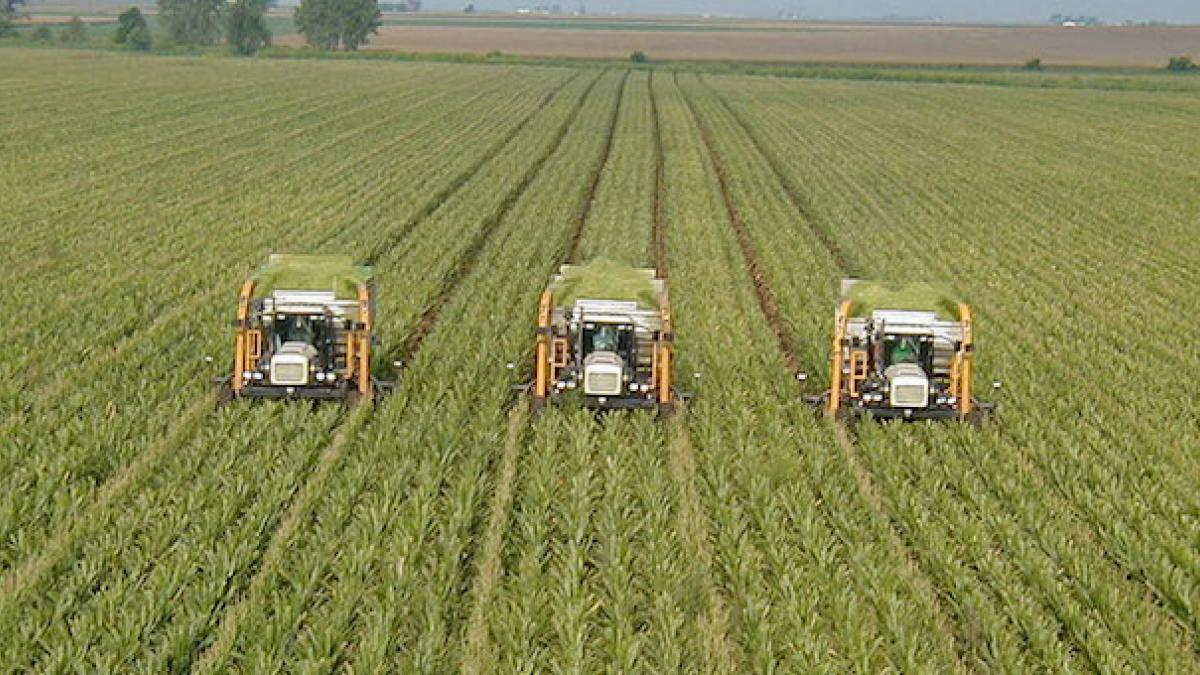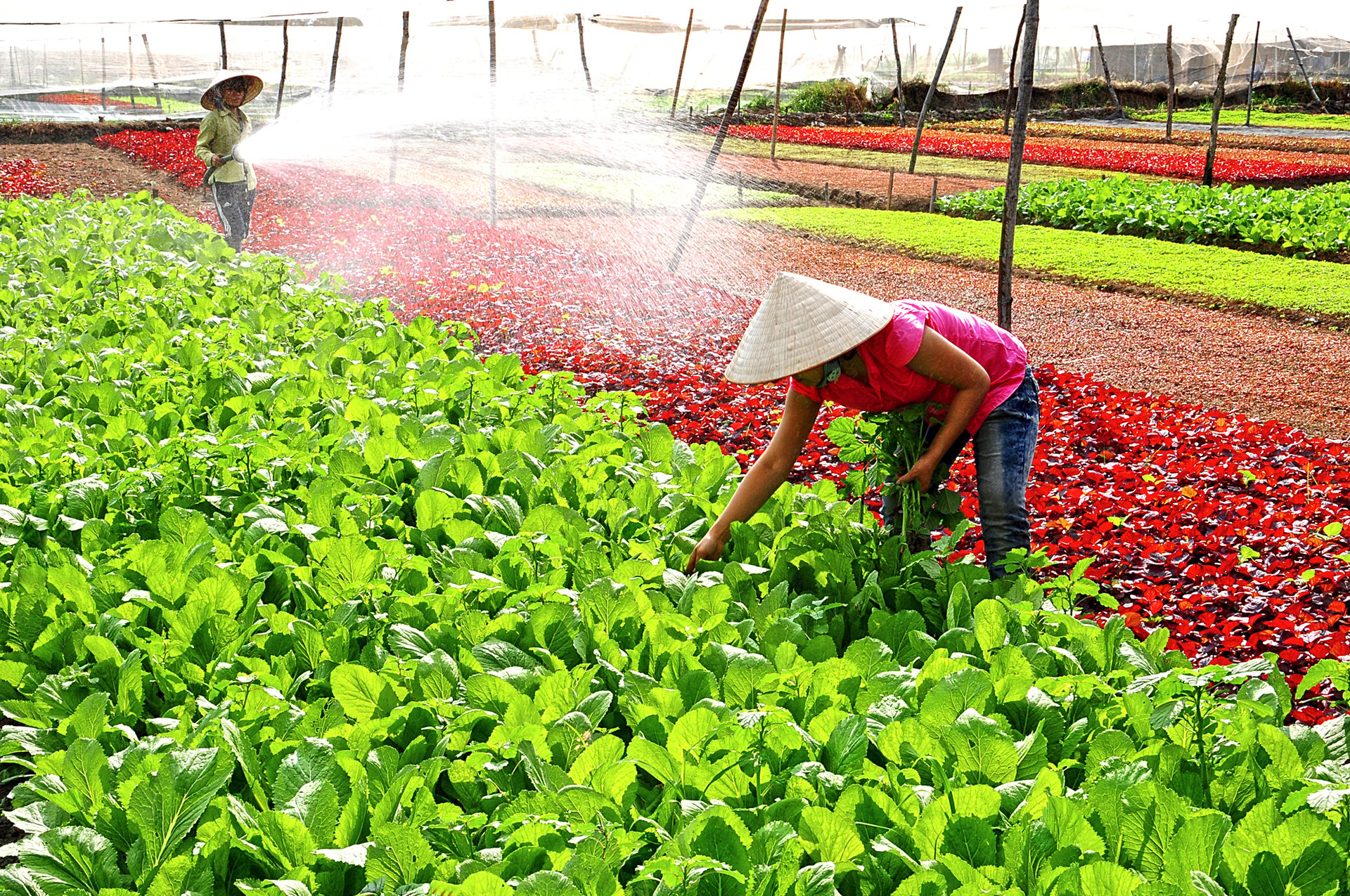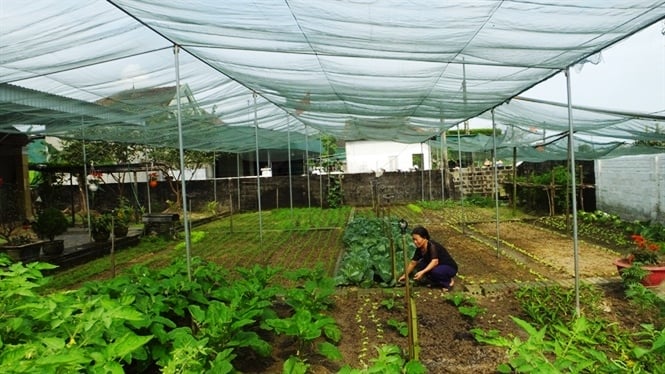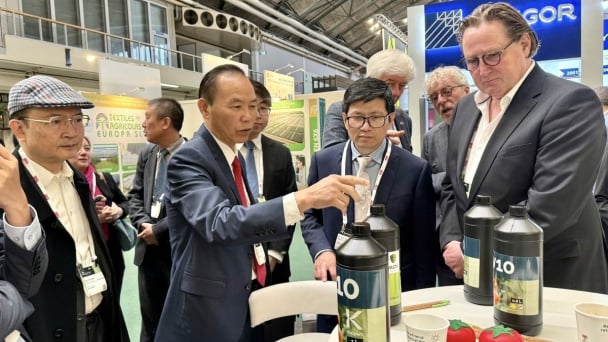June 13, 2025 | 10:24 GMT +7
June 13, 2025 | 10:24 GMT +7
Hotline: 0913.378.918
June 13, 2025 | 10:24 GMT +7
Hotline: 0913.378.918
According to the Food and Agriculture Organization of the United Nations (FAO), by 2026, Vietnamese people, especially those at risk of being left behind, will contribute and benefit equitably from the transition to a sustainable, inclusive, and gender-responsive economy based on innovation, entrepreneurship, productivity enhancement, competitiveness, and decent work.

Change paths must stem from appropriate technologies, digital tools, and platforms that are accessible and adapted to facilitate a smooth and inclusive transition to Fourth Industrial Revolution.
To that end, change paths must stem from national capacities that are strengthened to formulate and implement evidence-based policies and strategies, and enhance enabling ecosystems for inclusive, transformative, and sustainable agriculture, industry, and service sectors for decent work; sustainable, inclusive, and responsible business models and practices, including micro-, small and medium-sized enterprises (MSMEs) and cooperatives, are promoted to increase productivity, trade development, and innovation, and improve working conditions and compliance, with special focus on economic empowerment of the poor, ethnic minorities and women; and appropriate technologies, digital tools, and platforms are accessible and adapted to facilitate a smooth and inclusive transition to Fourth Industrial Revolution.
The UN's strategic interventions will include enhancing the institutional management capacity of heritage and cultural resources; reinforcing development strategies at the level of cities and encouraging public-private sector dialogues; strengthening institutional capacity in governance and financing modality of technology business incubators; strengthening and promoting linkages and synergies between food processing, handicraft, tourism and the creative industries for local economic development and women’s economic development.

The UN will also focus on innovative approaches to improve inclusion, such as developing strategies to mainstream digital services across all sectors.
In addition, strengthen integrated urban policies with interrelated socioeconomic, environmental, and cultural strategies to promote national and local economic growth and prosperity.
The UN will seek to prioritize vulnerable MSMEs and informal sector employment (especially those led by women, people with disability, and ethnic minorities) to enable a bounceback from the impacts of COVID-19 and to enable Viet Nam to build resilience to other shocks.
At the same time, directing to build a greener and more energy-efficient Vietnam; enhance domestic value-addition and productivity; grow domestic markets and consumer demand; connect firms to domestic and global value chains, while alleviating other bottlenecks for the development of Vietnam's small and medium enterprises, cooperatives and household economy.

It cannot be denied that “rural and agricultural communities remain one of the poorest and most vulnerable populations, especially in remote areas.
The UN intends to provide solutions that increase access to Information and Communication Technologies (ICT) services, expanding access to 4G and 5G technology and raising ICT capabilities among MSMEs, cooperatives, and disadvantaged groups.
The UN will also focus on innovative approaches to improve inclusion, such as developing strategies to mainstream digital services across all sectors as part of broadening the digital economy; promoting e-commerce adoption among MSMEs and cooperatives; developing innovative platforms for children and young people, particularly girls and young women, to learn and improve their skills for future employment; and developing and enforcing labor market policies for re-skilling of migrant and informal workers, particularly female workers in a digital economy.
FAO highly appreciates the Strategy of “Restructuring agriculture and rural economy in the period 2021-2030”, considering the great progress of Vietnam in poverty reduction, ensuring food security as well as promoting economic growth and socio-economic development.

The UN intends to provide solutions that increase access to Information and Communication Technologies (ICT) services.
However, it cannot be denied that “rural and agricultural communities remain one of the poorest and most vulnerable populations, especially in remote areas” and that “significant growth in agriculture has been achieved” at the expense of the natural environment, especially the depletion of natural resources, which increases greenhouse gas emissions, as well as causes people to migrate from rural to urban areas. Implementing UN activities in support of Vietnam's economic transformation, FAO and other members have proposed many recommendations to the Government of Vietnam, which focus on specific topics:
Translated by Linh Linh

(VAN) The Department of Agriculture in South Africa has announced the country’s first mass vaccination of poultry to prevent local birds from contracting avian influenza.

(VAN) Establishment of the Mekong Delta Regional Agricultural Linkage Center, aiming for a closed value chain, deep processing, trading platforms, and international market connectivity.

(VAN) Gia Lai province has recently recorded 460 rare species of animals and plants, contributing to forest conservation and biodiversity planning in the region.

(VAN) Ms. Caroline Beresford, New Zealand Ambassador to Vietnam, expressed confidence that agricultural cooperation between Vietnam and New Zealand will develop sustainably, be climate-resilient, and promote gender equality.

(VAN) Vietnam reaffirms its commitment to international cooperation in fostering sustainable and responsible fisheries while ensuring resilient livelihoods for small-scale fishing communities.

(VAN) More than just a technical solution, science and technology are gradually becoming a cornerstone in Vietnam’s journey toward building a circular economy.

(VAN) The Netherlands is ready to accompany Vietnam in building a green, circular, and sustainable agriculture sector that is resilient to climate change.